After nearly two decades away, bassist and percussionist Corcoran Holt recently returned home to Washington, D.C., to take on the next chapter of his evolution as a musician and educator. On the bandstand, Holt, 40, is an attentive listener and expert craftsman in delivering well-balanced songs with fellow band members, and rendering original tunes which allow musicians to showcase their strengths as soloists and collaborators. His debut album, The Mecca (2018), delivered fresh ideas and complex compositions that sound like conversations between masterful instrumentalists.
Now back in D.C., Holt’s impact is already being felt as both a musician and an organizer. He now presents a monthly series at Takoma Station, usually bringing a different out-of-town star each time to perform with Holt’s own group, and he curates a weekly gig every Wednesday at Flavor Garden, in the Van Ness area, passing the baton to different DMV-based musicians each week.
An early immersion into music — playing djembe from the age of four, and receiving classical training on upright bass with the DC Youth Orchestra — piqued Holt’s emerging interest in rhythms and soundscapes. Growing up in the DMV, a legacy of the city’s jazz excellence, combined with knowledge imparted by his family, mentors and teachers, set Holt on his path. An alum of the Duke Ellington School of the Arts, Shenandoah Conservatory (where he got a B.A. in Jazz Studies) and Queens College in New York (receiving an M.A., also in Jazz Studies), Holt has honed his craft as an intentional communicator of all things rhythm. The spirit of jazz — steeped in community, partnerships and innovation — continues to imbue Holt’s synergetic endeavors as he blossoms into another phase of greatness.
Holt’s time away from D.C. was fruitful, and he became a first-call bassist for many jazz legends, including Curtis Fuller, Jimmy Heath, Carmen Lundy, Roy Hargrove, Delfeayo Marsalis and Mulgrew Miller. He has been featured on albums by Teodross Avery, Brian Settles, Francesca Han, Freddie Hendrix and Kenny Garrett, his longtime employer. While pursuing new ventures and balancing a family with his wife, Raven, Holt continues to tour the world as the bassist in Garrett’s quintet.
Holt’s new residency at Flavor Garden invites both seasoned and up-and-coming jazz musicians to participate in the fellowship and workshopping unique to jazz, as they explore both new works and old standards. Each Wednesday, from 6:30 to 8:30 p.m., patrons can enjoy compelling music while supporting the new venue, located on the 4400 block of Connecticut Avenue NW. Flavor Garden, owned by Mrs. Diedre Holliday and Mr. Henry White, is currently one of the few Black-owned establishments along that stretch of restaurants in Ward 3.
CapitalBop spoke to Holt by phone about touring the world, developing his own projects and building a family in the DMV.
CapitalBop: You’ve been away from D.C. for a while. Talk about your motivations for moving back.
Corcoran Holt: I was in New York during the pandemic. We moved back to D.C. in December 2022. I always had a vision of making my way back to D.C. after a period of being gone. I’ve been out of D.C. for 17 years. I was thinking about musicians and the next generation. I want to inspire and teach what I learned. The pandemic allowed me time to think about who I am and where I come from. I wanted to have a moment to come back to D.C., whether it was permanent or temporary, to know how it feels after being gone for so long, as well as for my family.
‘I was thinking about musicians and the next generation. I want to inspire and teach what I learned.’
CB: Your high school alma mater is Duke Ellington School of the Arts. How has music education transformed your life?
CH: Duke taught me how to focus. Whether it was with a jazz ensemble or a combo, playing with different musicians teaches you how to listen. You also learn how to fit in and to support. That education you can apply toward how you are in the world. It stretches further than music. At Duke Ellington, creativity was bouncing everywhere. Those were some of the most inspirational years in my development. I received a Bachelor’s from Shenandoah University and a Master’s from Queens College. I just reached 40 years [old]. Being out here and playing with other people and traveling the world — that’s all education. All of this plays a role in who I am.
Jazz has really become institutionalized. What’s important is the action of doing and actually listening and falling into the music outside of the technicalities. [Not] only learning everything from school. There’s so much to learn outside of the classroom. Life is the classroom. All of it plays a major part in my life. I’ve learned even more than in school. I am thankful for all the education.
CB: You’ve played alongside many jazz experts, including in concert, touring and recording albums. Can you speak on how mentorship shaped your life?
CH: I wouldn’t be who I am without [mentorship], starting with my father, who got me involved in music and helped me discover something that I was passionate about. He put the bass in my hand. He put the percussion in my hand. He transitioned in 2018. He told me that if I’m focused and do right by music, music will take care of me. My father connected me with Davey Yarborough, who has been my mentor since I was 13. Yarborough taught me how to be professional on the bandstand. He set up gigs at Duke Ellington. In high school, I traveled abroad to Europe.
My father was amazing. I’ve always had fathers that I could lean on. My community of strong Black men helped me see my vision. They always supported me. I’m in a space to help younger musicians. I’ve been blessed to have these experiences that I wouldn’t have had, otherwise. Mentorship is important. We’re always going to need it. I don’t care how old you are. You will always need support and guidance from somebody who sees something in you. I hold that very high on my list.
While attending Shenandoah [University], I was having a rough time. I went from attending a school like Ellington that was filled with so much creativity and many people like myself, young Black creatives, to the opposite. At that time, I was unhappy. Ultimately, I worked with my college to select a bass instructor from D.C.. They connected me with Michael Bowie who put me on a major gig with Curtis Fuller. Fuller recorded with Art Blakey and The Jazz Messengers. From that moment, I was never the same. I became close to people like Javon Jackson, Carl Allen, and Jimmy Cobb. To this day, I’m close with Kenny Garrett. I’ve been playing with Kenny for 12 years. I’m always pushing to reach that special, spiritual place.
CB: Share with us about your residency at Flavor Garden. How’d you come to perform there?
CH: Henry White, co-owner of Flavor Garden, is a friend of mine. He contacted me about music on Wednesdays. At the time, he didn’t know I was back in D.C. I’d previously thought about finding a space for events like Café Nema. From there, I started curating the series. It’s never the same band on Wednesdays. If I’m not in town, I schedule for other musicians to play. D.C has changed; I was excited to bring music to a different location, close to UDC. Many venues have closed. This is a series that I can call my own. I’m appreciative of that.
CB: What goes into selecting the music played on Wednesdays? Describe the vibe and sets.
CH: I go with how I’m feeling. If I’m playing with a specific group, there are certain tunes we like to play. If I’m playing with musicians such as Brian Settles and Kweku Sumbry, we’ll play original music. I try to choose standards that us musicians enjoy playing and that are challenging. I leave it open so that we play tunes that we can get inside of. The first set is for the scheduled trio and the second set opens for a jam session where other musicians choose what to play.
CB: Share with us how you balance a touring career along with keeping your family central.
CH: I try using time in a different way than I’ve done before. I can’t do everything musically that I’d like to do anymore, if it’s interrupting our family. My wife is an artist as well. It’s a lot of work when you have two children, and you must put things on hold to raise kids. I work to figure out ways to support her. We collaborate to fulfill our creative needs and leave a legacy for our family. My son just turned five. He sees the suitcase and starts acting up. With my daughter, we’re really connected. My family is close. Another reason why I came back was to create more stability. My mom and my sister are here. For a lot of my heroes, who were the greatest musicians to do it — both women and men — family is a challenge. Being a father, a husband, a son and a brother are important to me. I can’t do this playing if my family isn’t good. That’s who I am. It’s an every-day process.
Corcoran Holt performs and curates shows every Wednesday at Flavor Garden. He plays monthly at Takoma Station.

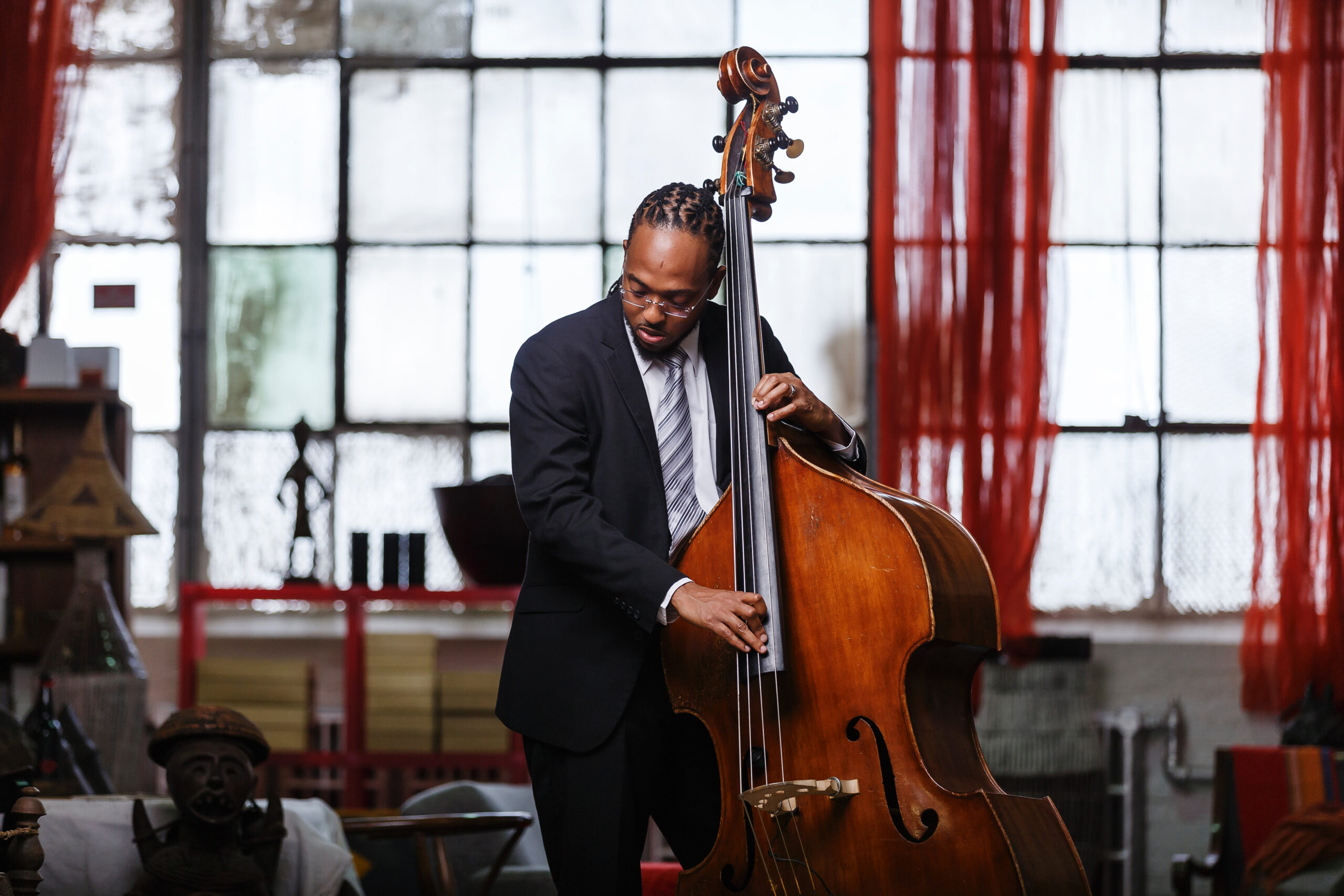
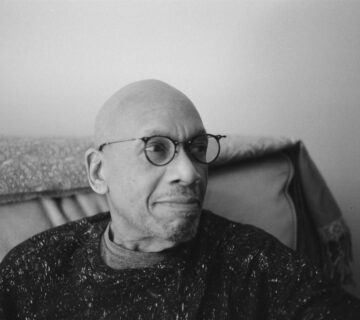
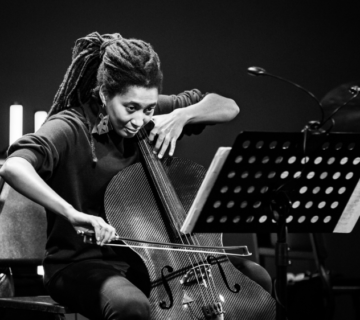
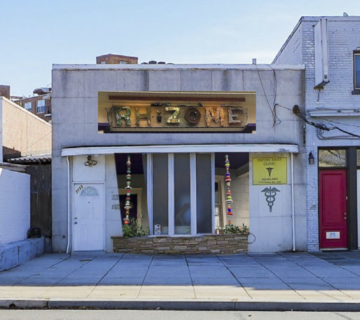
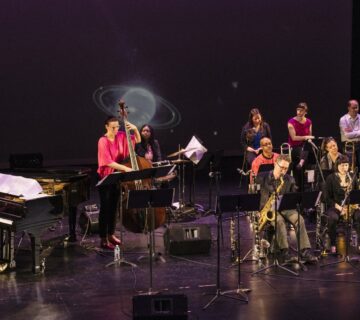
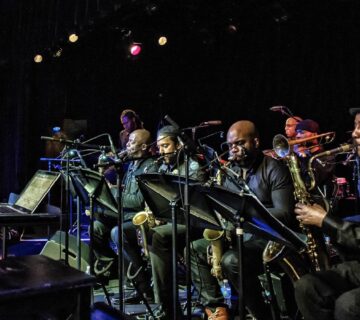
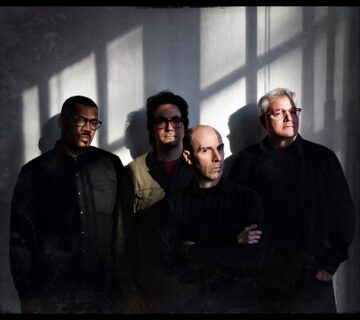
Join the Conversation →